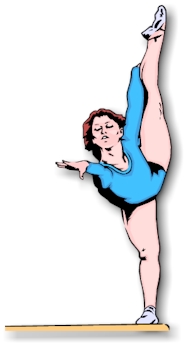

Physical Practice vs. Mental Practice


Physical Practice vs. Mental Practice
![]()
 這裡所指的心理訓練,就是在沒有實際的身體動作下,運動員想像自己如何成功地完成動作。Feltz & Landers(1983)透過一種名叫 meta-analysis
的統計方法,指出許多研究都支持心理訓練有助提高運動技能學習及表現。
這裡所指的心理訓練,就是在沒有實際的身體動作下,運動員想像自己如何成功地完成動作。Feltz & Landers(1983)透過一種名叫 meta-analysis
的統計方法,指出許多研究都支持心理訓練有助提高運動技能學習及表現。
除了促進學習及表現外,心理訓練還可以增強運動員的自信(經常看見自己成功的演出),使他們更能放鬆,並且把注意力只放在如何做得更好的方面。在缺乏器械或運動員因傷而未能參與身體訓練的情況下,心理訓練也不失為練習的另一種途徑。

訓練課安排的基本原則 |
|
跑步的運動心理學 |
![]()
![]()
References
![]()
Feltz, D. L., & Landers, D. M. (1983). The effects of mental practice on motor skill learning and performance: A meta-analysis. Journal of Sport Psychology, 5, 1-8.
Schmidt, R. A. (1991). Motor learning & performance: From principles to practice. Champaign, IL: Human Kinetics.
![]()

Back to Motor Learning and
Performance of
Running
最近更新日期(Last Updated):2007-07-01